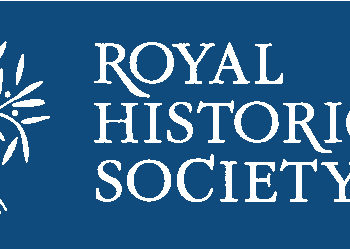Many Scholarly Kitchen readers will be familiar with Knowledge Unlatched, an open access (OA) program that has gained worldwide attention for a number of initiatives, perhaps most famously a project whereby libraries pool money to support the publication of scholarly books on an OA basis by established and well-regarded publishers. On October 5, Knowledge Unlatched put out a press release announcing “its transformation into a central Open Access platform,” through which it will both “support publishers and OA initiatives by managing the funding processes for their OA models” and also “provide libraries and funders all over the world with one central place where they can support OA programmes.” Intrigued but also a little bit unsure as to what this new initiative actually meant, I reached out to Knowledge Unlatched with some questions, to which Managing Director Sven Fund graciously and promptly responded.

What led Knowledge Unlatched (KU) to embark on this new program, and how will it impact KU’s existing program of open-access book underwriting?
One of the dominant hurdles to more open access is not the lack of resources, but the fragmentation of the sector. There are many interesting initiatives looking for financial support from libraries, and libraries are willing to finance them. But it takes a lot of a librarian’s time and effort to understand them and figure out which best meet their needs and resources. KU’s new service offers an easy way for libraries to differentiate between the array of OA programs, allocate their budget strategically, and handle invoicing and payment seamlessly through one platform. KU’s growth is iterative — we’ll continue to offer ebooks and journals through our “classic” model. In fact, we are expanding our offerings with STEM subject area collections in 2018.
What does KU’s “transformation into a central open access (OA) platform” mean in practice? What will KU now be doing that it wasn’t doing before?
We are making our platform as well as our global sales force available to other OA initiatives, thereby creating a “bridge” to funding and greater discovery. We believe this will boost the effectiveness of open access. KU works for a variety of business and product models. In the past, KU focused on building a collection of books and journals from a number of different presses in KU Select ebook and ejournal packages. Some of KU’s new partners run on a membership model, while others base their activities on support for single titles or collections.
Does KU see this new development as a natural extension of its previous work and priorities, or as a significant change in direction?
We have always been committed to practical, sustainable open access, and we believe that a united framework will make that sector more workable for everyone involved. This addition to what KU has been offering in the past is quite significant and can help to de-duplicate the efforts by so many initiatives out there. Open access does not need a revolution, it needs to gain momentum to have more impact. To that end, librarians have to start shifting their budgets from traditional acquisition to supporting sustainable OA. KU is trying to help with that.
What problem(s) does KU now propose to solve for libraries, publishers, and others interested in creating and sustaining OA programs?
We often hear that librarians want to support OA, but find it complicated and hard to sell to their administrators. In additional to concerns about understanding the difference in models, it’s not easy for them to show return on investment from an individual institution’s perspective. KU has invested considerable financial resources into technology, usage reporting (COUNTER compliant, as well as geolocational), and boosting discovery. We’ve made an even greater investment into building relationships with librarians, spending a lot of time explaining how a library or a research institute can support open access through KU. With the new model, we hope to capitalize on that trust to help others thrive with their OA concepts as well. Remember, we are confident libraries don’t lack the financial resources, but need easier access to OA models and providers.
What is the revenue model for this program? Will KU keep a percentage of the money that passes through KU from libraries to publishers, or will the publishers pay directly for the service? (Or will revenue be generated in some other way?)
Our partners share the cost of the outreach activity with us and pay us a commission on the expected revenue.
The word “central” strikes me as particularly interesting. Does KU envision itself providing a platform that will centralize OA processes and workflows for the scholarly communication ecosystem generally, or for smaller subsets of that system, or both?
We feel that it needs more commonalities than differences, and it is a natural step in a maturing environment for initiatives join forces to achieve more impact. That is what we mean by central, and we assume that libraries like more efficiencies in their workflows when it comes to open access. Needless to say, KU remains open to every prudent OA player that wants to join the marketplace.
KU has announced five new international partners for the upcoming year, saying that “the first OA models from these partners will become publicly accessible on the platform” in 2018. Can you tell us more specifically what it means that these organizations’ models will be made available on the KU platform? (For example, if I’m an author publishing my book with Luminos, what will look different to me next year?)
This statement relates to the outreach process of the respective initiatives and pledging financial support by libraries. For authors, nothing changes, they can focus on their research to be published OA. The same holds true for publishers. They can continue to deal with their core businesses, while offering innovative approaches to publishing at the same time. Knowledge Unlatched will make sure to connect the different parties in order to create as little disruption of the scholarly communication ecosystem.
Is there anything else that you’d like our readers to understand about this new program?
One of the reasons KU has succeeded so far is our willingness to listen to feedback from our various stakeholders, incorporate it into our strategy, and evolve accordingly. One thing I’m certain of is that won’t change.
Discussion
2 Thoughts on "Knowledge Unlatched Announces Transformation: An Interview with Sven Fund"
I am amazed that no-one has commented and not even those chefs who usually have something to say.
I still found the model Sven (such a busy man) is putting forward difficult to understand but I am not a publisher or a librarian. Or is it because it is about books?



